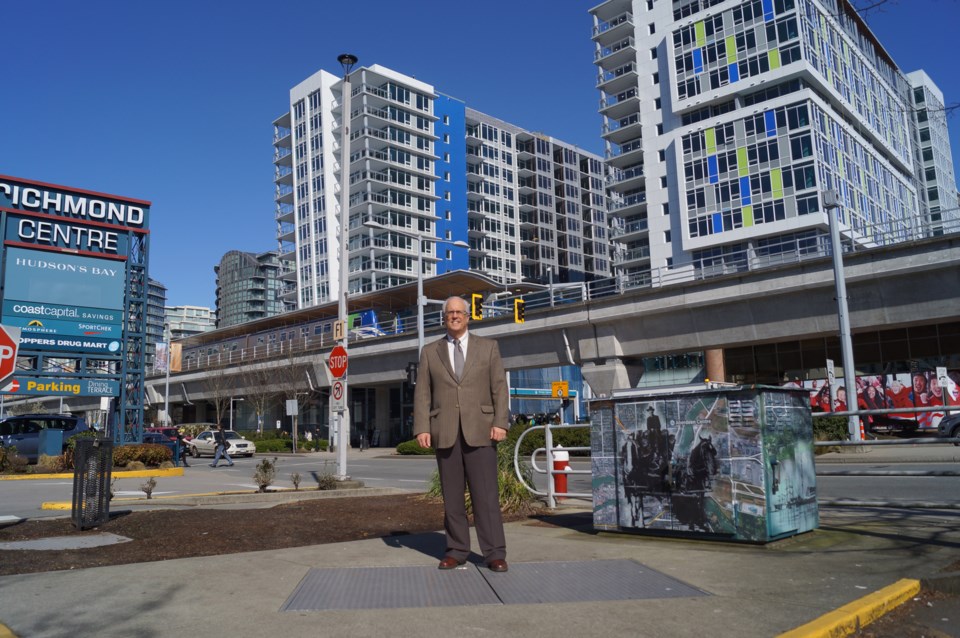Mayor Malcolm Brodie was asked by the Richmond News for the three things he hopes a new government accomplishes for Richmond in the next term, following the May 9 election.
At top of mind is the planned, $3.5 billion 10-lane bridge to replace the George Massey Tunnel.
“I would like a re-think on the Massey Tunnel replacement bridge where we recognize we have a congestion problem and we can find better ways to deal with it,” said Brodie, who has suggested twinning the tunnel at a fraction of the cost.
To date, the BC Green Party and BC NDP oppose the bridge plan, while the BC Liberal Party is its proponent.
Brodie said support for the Mayors Council’s 10-year, regional transportation plan means not supporting the existing Massey Tunnel replacement project, which is not in said plan.
“Transit solutions should be coordinated,” said Brodie.
Second on his “wish list,” Brodie is wanting an expedited process to re-build the acute care tower at Richmond Hospital.
“I would like to see an actual commitment to the building of a new hospital tower in this coming term,” said Brodie.
The BC Liberals have stated drafting the business plan will commence this fall.
Third, Brodie said he is concerned about the number of schools that are at risk of collapse in an earthquake, as well as public education funding.
“I would like a commitment to better funding of the schools and avoiding any school closures,” he added.
Brodie: Keep rezoning in city’s hands
Brodie was also asked about other civic matters.
A common concern being raised by some, including Liberal candidate Jas Johal, is that developments take too long to be processed by municipalities.
The NDP and Liberals have pledged to work with municipalities to improve the process, but Brodie sees no need for provincial government intervention.
“That’s always a concern. The question as to why it takes so long, well, when you investigate the situation there are times a city takes too long and many times the development community is responsible. I think it’s a matter of both sides working together,” said Brodie.
He also dismissed suggestions from some UBC and SFU academics that certain zoning powers should be put in the hands of the province. A common concern, such as from UBC economist Tom Davidoff, is that single-family zones are overly protected by municipal politicians, thus fueling housing unaffordability.
“We decided as a city we would protect the single-family neighbourhoods and densify the arterial roads and City Centre. We stuck to that. That gets density,” argued Brodie.



